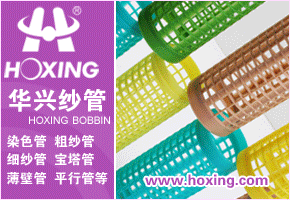OEKO-TEX focuses on socially acceptable textile production
Environmentally friendly and socially acceptable production conditions will continue to be one of the greatest challenges of the textile industry – that was the bottom line of this year's meeting of the OEKO-TEX General Managers which took place from 12 to 14 November in New York.
In reaction to growing public awareness in this field, global brands and their supply companies in the production countries are increasingly using independent certifications as public and trustworthy documentation of their commitment to human-ecological product safety and sustainability.
According to OEKO-TEX managers, one manifestation of this trend is the positive global development of certificates issued according to OEKO-TEX Standard 100, for which the record number of 11,806 certificates was recorded for the last twelve months alone. At the same time the OEKO-TEX Association announced the introduction of the “Sustainable Textile Production” (STeP) certification for next year, a revised version of the current OEKO-TEX Standard 1000.
It offers all production companies along the textile value chain the option to have the sustainability of their production conditions evaluated and audited by the independent OEKO-TEX institutes on the basis of a scoring system.
‘With its modular concept,’ says OEKO-TEX General Secretary Dr Jean-Pierre Haug, ‘the new certification tool highlights all central business areas such as quality management, use of chemicals, environmental protection, environmental management, social responsibility as well as health and safety.
The specific tailoring to the situation in the textile and clothing industry provides interested companies with targeted support for continuous improvement of their production conditions. The STeP certification for sustainable textile production will first be presented to the public on 26/27 March 2013 in the framework of the Prime Source Forum in Hong Kong.
The focus of the General Managers meeting was on the resolutions for the revised version of the OEKO-TEX Standard 100 test criteria which will be integrated into the standard at the beginning of the year as usual. Testing of relevant textiles for alkylphenol ethoxylates (APEOs), which was agreed last year already, will finally become binding from January 2013. This supports the effort to ban this environmentally harmful group of substances, which are mostly used as surfactants, from textile production.
Another item on the agenda were the extensive measures of the OEKO-TEX institutes for ensuring a globally standardised level of health and safety for tested textiles. ‘The company audits which became binding in 2010 for all companies with OEKO-TEX certificates provide us as well as the companies with the ideal opportunity for optimally aligning corporate quality assurance with the requirements of the OEKO-TEX criteria catalogue,’ explains Dr Jean Pierre Haug.
The personal professional dialogue with the companies has also proven to be an excellent opportunity for making the production companies sensitive to responsible handling of substances such as alkylphenol ethoxylates and to support them with changing to environmentally friendly alternative products.
Certificate holders also appreciate information about current offers from the OEKO-TEX Association such as the new Buyer's Guide portal where companies can enter their product portfolio on the internet free of charge. The OEKO-TEX managers unanimously agreed to continuing the company visits consistently in the future. So far, two thirds of all companies have already been audited worldwide.
Haug declared that the first audit will have been completed for all companies by the end of 2013. On principle, every company with OEKO-TEX certified products has to undergo an audit every three years.
The meeting of the OEKO-TEX institute directors concluded with a half-day seminar which was attended by around 100 representatives of internationally renowned manufacturers, brands and retail companies from North America.
Under the theme ‘The Next 20’, renowned speakers gave an overview of how the textile and clothing industry can implement the concept of sustainability in future efficiently and extensively. Robert F. Kennedy Jr. as the keynote speaker lectured on his years of successful work in the area of environmental legislation and the protection of existing water resources – two aspects of ecological production conditions which are also important in the textile industry.
转载本网专稿请注明出处“中国纺织网”
编辑:纺织网







